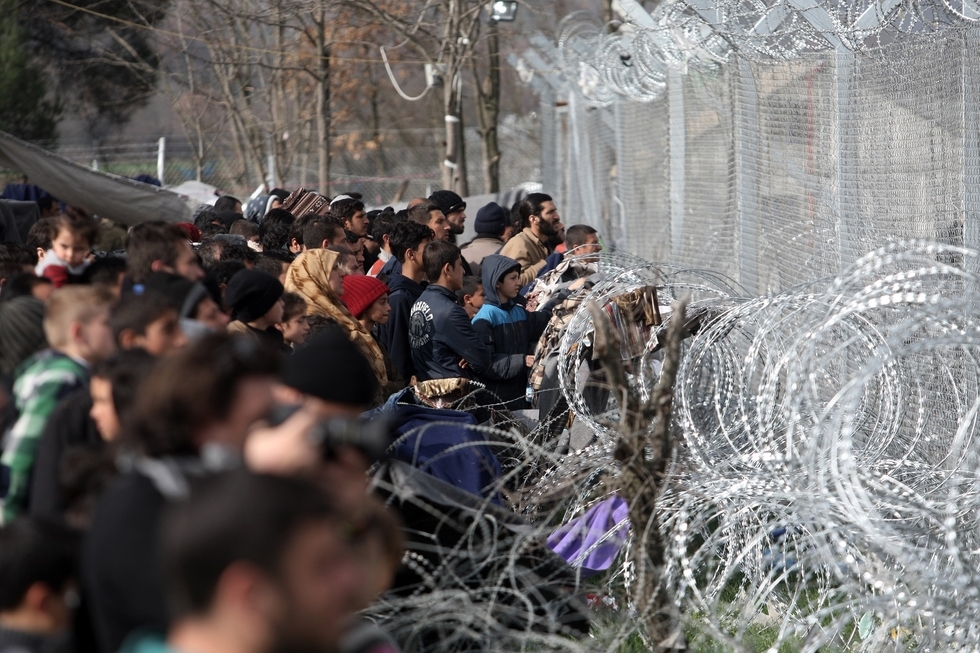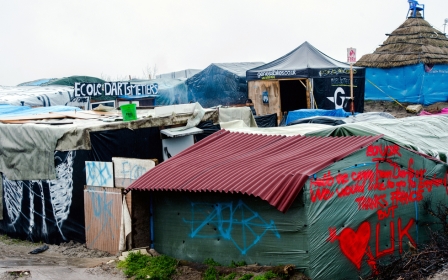Europe facing 'self-induced' crisis as refugee numbers soar: UN

The UN on Tuesday warned that the European refugee crisis was accelerating into a "self-induced humanitarian crisis" as numbers spike to new highs amid reports that attempts to control the flow on the EU's outer edges were leaving thousands of people destitute.
The UNHCR refugee agency reported that more than 131,000 people had reached Europe via the Mediterranean this year - more than the total number in the first five months of 2015.
The vast majority of those had landed in Greece and most were fleeing the conflict in Syria, the UN's refugee agency UNHCR said, as Greece said it needed $534mn in emergency funds to help shelter 100,000 refugees.
The human cost of the mass movement was laid bare on the Macedonian border with Greece on Tuesday, as thousands of sodden and tired refugees gathered around the Greek village of Idomeni and attempted once again to enter Macedonia despite new restrictions.
Idomeni was on Monday the scene of riots, with Macedonian border guards firing tear gas at refugees who attempted to break down the border fence with a home-made battering ram. Dozens of people were injured.
'Self-induced' crisis
At least 7,000 refugees and migrants are believed to be on the Greece-Macedonia border with inadequate access to food, medicine and shelter and more than 1,000 are streaming in from Turkey daily.
"Europe is on the cusp of a largely self-induced humanitarian crisis," UNHCR warned, accusing EU governments of fuelling the chaos and suffering by resorting to "inconsistent practices" in response to the migrant and refugee influx.
Reports from the ground said those trapped on the Greece-Macedonia border were left scrambling over each other in a desperate attempt to grab food and other supplies from overstretched aid agencies.
"We have been waiting for six days," Farah, a 32-year-old Iraqi woman from Baghdad told AFP as a van distributing canned food and long-life milk was quickly mobbed and emptied in minutes.
"The food is not enough, everyone is lying to us and we are desperate," she said.
The grim weather has already taken a harrowing toll on the travellers' health, AFP journalists on the ground said, with many children heard coughing and crying among the tents.
Zineb Hosseini, a Syrian mother of five, said her family was "freezing".
"And now the wait begins anew," she added.

Yousef Karajakes, a 30-year-old Syrian pharmacist from the northern city of Aleppo, said he fled the civil war only to find himself in another conflict.
"We are Syrian and Iraqi, we come here from the war just to find another war. They told us come, come, come here, come here and now we come and found a second war," said Karajakes, who lost his wife and child in a bombing.
If the situation continues to escalate, then 70,000 people could find themselves “trapped” by next month, a Greek government spokesperson said.
The closures have sharpened divisions in the EU with Germany accusing Austria of triggering a domino effect by saying it would cap asylum requests at 80 per day and allowing only 3,200 migrants to cross its territory daily. A week later, Serbia, Croatia, Macedonia and Slovenia all followed suit.
Angered by ongoing border closures, hundreds of desperate migrants tried to break through the border, with Macedonian police firing tear gas into a crowd that included children. At least 30 people - many of them children - required first aid, a medical charity said, while a Macedonian policeman was taken to hospital.
The EU said on Tuesday it was "very concerned" about the crackdown at the Greek-Macedonian border.
But Macedonia’s foreign minister, Nikola Poposki, defended his country’s actions, saying that the situation had spun out of control.
"What we have seen is some 400 young male people trying forcibly to enter Macedonian territory from Greece," Poposki told BBC Newsnight.
"If you are part of the security forces and you are faced with a situation where you have a violent attempt from several hundred young male people to enter territory, without willing[ness] to register or to go to reception centres, I don't think that this is in line with what we have agreed at the European level."
With Europe increasingly divided over the crisis, calls have been growing for Washington to step up and play a larger role.
Senior former and serving US officials told AFP that some in Washington regard the Syrian migrant crisis as an existential threat to the European project.
"This risks unravelling the European Union as a political construct," Ryan Crocker, a former US ambassador to Syria, Iraq and Lebanon said on Monday.
"This current refugee crisis is by far the largest crisis since the end of World War II - literally in 70 years - and it is getting worse."
Meanwhile, France on Tuesday continued the partial dismantling of a refugee camp in Calais, known by its 4,000 residents as the "Jungle," as residents held sit-ins in protest.
On Monday, residents from the Calais camp clashed with French police and contractors as they began bulldozing their makeshift homes, with some refugees setting fire to their shelters.
Stay informed with MEE's newsletters
Sign up to get the latest alerts, insights and analysis, starting with Turkey Unpacked
Middle East Eye delivers independent and unrivalled coverage and analysis of the Middle East, North Africa and beyond. To learn more about republishing this content and the associated fees, please fill out this form. More about MEE can be found here.




